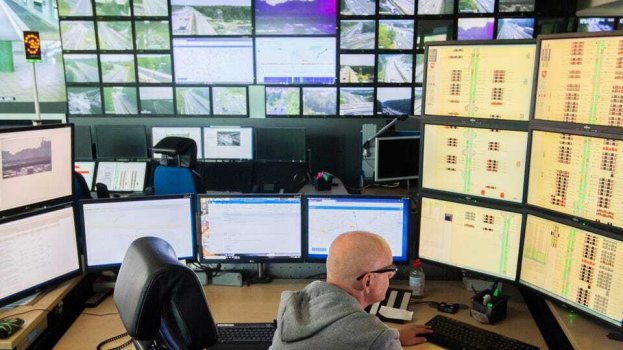Few people can claim the moniker of “pioneer” in building the internet as we know it. Rami Rahim, CEO of Juniper Networks, is one of them who had a front-row seat in the late 90s to the infant days of building the internet. At the time, I along with other Silicon Valley CEOs, was frantically building out web 1.0 companies, which required a grueling DIY business creation approach.
Back then, we all had to build everything ourselves, like hardware, software, data centers and even dial-up access networks—without convenient, low-cost broadband and AWS services that allow us to quickly launch services, apps and sites now. The predominant problem pioneers like Rahim were trying to solve for us centered on creating massive networking hardware capable of keeping up with a world teeming with people interested in logging onto the world wide web—especially bandwidth thirsty online games companies like mine at the time. He served as a key engineer on the founding Juniper team that brought to market breakthrough silicon inside computer hardware that helped scale the global internet to what it is today and holds 17 patents in various networking technologies.
While the challenge of keeping up with insatiable demand for network services will never go away, and our reliance on the global internet has never been greater, the game has changed, and requires yet another reboot—and a new way of thinking about computer networks.
As I’ve been delivering keynotes and digital-transformation executive education sessions about buzzy innovations on the horizon, like Web3, metaverse and self-driving cars, it’s becoming clearer that there is not just a consumer sea change ahead, but the technology infrastructure, networking, hardware and software that makes it all happen. And if Juniper and its competitors are going to stay in a leadership position of relevance—they need a reboot.
AI (artificial intelligence) and machine learning have transformed the way we work, shop and play, while enabling entrepreneurs to invent entire new categories—from Hopper, which rebooted when you should buy a ticket to Revieve (where I’m Chairman), which transformed how retailers, brands and media companies personalize health, beauty and wellness for consumers.
Continue reading: https://www.forbes.com/sites/deandebiase/2022/06/21/the-ceo-rebooting-ai/?sh=50a273cc1550
Back then, we all had to build everything ourselves, like hardware, software, data centers and even dial-up access networks—without convenient, low-cost broadband and AWS services that allow us to quickly launch services, apps and sites now. The predominant problem pioneers like Rahim were trying to solve for us centered on creating massive networking hardware capable of keeping up with a world teeming with people interested in logging onto the world wide web—especially bandwidth thirsty online games companies like mine at the time. He served as a key engineer on the founding Juniper team that brought to market breakthrough silicon inside computer hardware that helped scale the global internet to what it is today and holds 17 patents in various networking technologies.
While the challenge of keeping up with insatiable demand for network services will never go away, and our reliance on the global internet has never been greater, the game has changed, and requires yet another reboot—and a new way of thinking about computer networks.
As I’ve been delivering keynotes and digital-transformation executive education sessions about buzzy innovations on the horizon, like Web3, metaverse and self-driving cars, it’s becoming clearer that there is not just a consumer sea change ahead, but the technology infrastructure, networking, hardware and software that makes it all happen. And if Juniper and its competitors are going to stay in a leadership position of relevance—they need a reboot.
AI (artificial intelligence) and machine learning have transformed the way we work, shop and play, while enabling entrepreneurs to invent entire new categories—from Hopper, which rebooted when you should buy a ticket to Revieve (where I’m Chairman), which transformed how retailers, brands and media companies personalize health, beauty and wellness for consumers.
Continue reading: https://www.forbes.com/sites/deandebiase/2022/06/21/the-ceo-rebooting-ai/?sh=50a273cc1550

